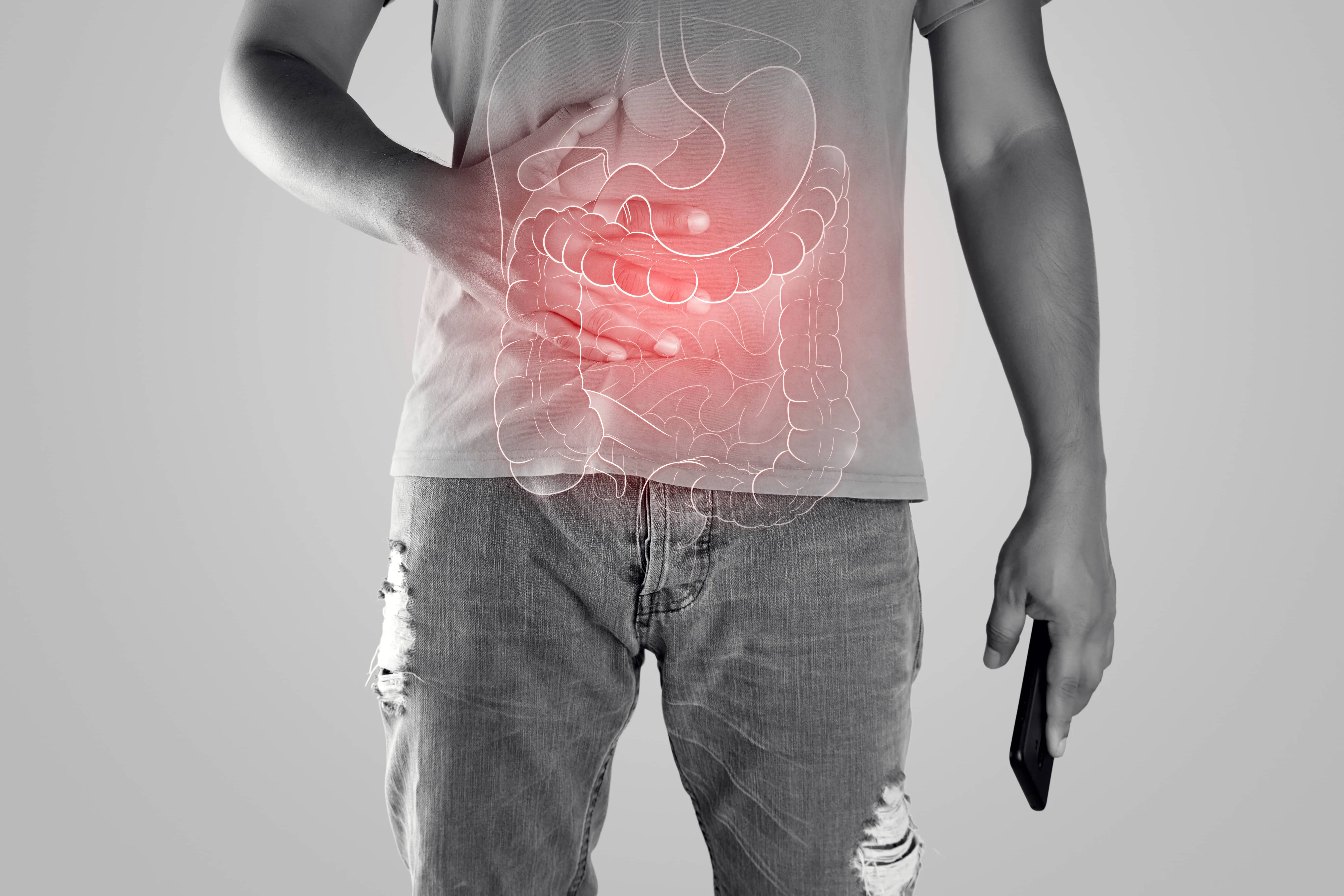Natural Healing Solutions | Mar 01, 2022
Our bowels are the most important component of the Gastro-Intestinal system that is distinctively concerned majorly with digestion and absorption of the food and formation and excretion of the unwanted and undigested food and feces. It is a complex process and depends on various factors like the food itself, gut health, general health status and of course like in everything else, the mind matters here as well.

Irritable Bowel syndrome (IBS) typically is the irritation in the bowel leading to abnormal contractions of the muscles in the walls of the intestine. This contraction is mainly due to the irritation or imbalance in any one or more of the gastro-intestinal processes (digestion, absorption and excretion) and the factors affecting these processes.

The symptomatic presentation of IBS
The symptoms are varied and fluctuating. It is called a syndrome because of its varied presentation and varied impact. The symptoms are tabulated below.

Causes of IBS
- Infection: Any infection of the intestines can trigger the development of IBS.
- Food: Food and food like substances that are spicy, oily, processed and refined can irritate the intestinal lining. Unhealthy meal timing can also put extra load on the digestive system and can irritate the intestinal lining.
- Gut health: Gut health is very important and depends on the long-term food habit and the psychological state in which we are constantly and frequently experiencing. Chronic unhealthy food habits and states of anxiety and restlessness can increase the hypersensitivity of the intestinal walls and alter the gut microbiome and thereby trigger the development of IBS
- Sleep: Unhealthy sleeping habits like sleeping late, day time sleeping, disturbed sleep can compromise the gut health and therefore can trigger IBS.
- Smoking and Alcohol consumption: These habits increase the low-grade inflammation in the body and dysregulate the neuro-endocrinal functions. This directly impacts the gut and can trigger the development of IBS
- Stress: Stress is one of the major causes of IBS. It is evident from various clinical studies that reports stress aggravated the symptoms of IBS. Stress and gut health are very much inter-related. Stress, anxiety, restlessness and mood fluctuations alters the gut health by various mechanisms and at the same time compromised gut health can in turn affect the stress managing capacity of the mind and aggravate the anxiety and restlessness.

IBS if left unattended to can impact the overall health of the individual physically and psychologically.
Management of IBS
The gold standard approach for management of IBS is PreventionàRecognitionàTreatment or Managementà Preventing further complications.
Prevention
- Healthy lifestyle is the foremost MANTRA for preventing IBS
- Follow healthy food habits
- Undergo therapeutic intermittent fasting under guidance
- Adopt healthy sleeping habits and maintain sleep hygiene including routine
- Learn to manage your stress levels.
- Recognize your symptoms early and seek early professional help when in need
Recognition
Our body always tries to communicate with us by various symptoms. We should be aware and alert enough to hear as soon as it whispers rather than ignore until it shouts the symptoms out.
- Recognize your symptoms and seek professional help
- Recognize your lifestyle and food habits and make necessary changes
- Be aware of the triggers that aggravate your symptoms and try to regulate them. For example, spicy food, anxiety etc.
Treatment
Various natural healing solutions are available to treat and manage IBS. It is mandatory that lifestyle corrections, dietary modification and stress management be practiced effectively along with the therapies.
- Role of Acupuncture therapy

- According to traditional Acupuncture medicine, IBS is an energy deficient condition due to stress and unhealthy food habits leading to either constipation and/ or loose stools, fatigue, bloating and heaviness.
- Along with lifestyle corrections, when Acupuncture therapy is done, these energy imbalances are corrected by regulating the neural signals. Thereby, it improves digestion and absorption, regulates the bowel movement, eases constipation and loose stools along with improving overall energy.
- Low grade inflammation triggers the contraction of the intestinal wall, increases the mucosal permeability that aggravates the condition. Acupuncture is proven to reduce the low-grade inflammation.
- Acupuncture is not just effective to the body but also to the mind. It helps manage anxiety and stress. It is also very relaxing and improves the quality of your sleep.

- Yoga is proven beyond doubt as an effective tool to improve health and wellbeing at planes of being, be it physical, energetic, mental & intellectual.
- Yoga asanas improve the blood circulation to the gut and keeps it healthy. Thereby, it improves digestion and absorption.
- Yogic techniques are also very effective in regulating the healthy bowel movements.
- Pranayama, relaxation techniques and Meditation is promising to stabilize the mind managing stress and anxiety.
Following these guidelines effectively will not only help in treatment but also in preventing further complications of IBS.
To conclude, we have to understand that, as long as we do not irritate our bowels with our unhealthy lifestyle and food habits, with our stress and anxiety, our bowels will not irritate us.
Dr. Deepashree S, BNYS, MSCCFT, Consultant, Anandamaya Wellness Center


